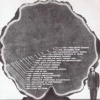
NorthernLights
-
Posts
11 -
Joined
-
Last visited
Reputation Activity
-
 NorthernLights got a reaction from mindful in On Reading Effectively in Graduate School
NorthernLights got a reaction from mindful in On Reading Effectively in Graduate School
Hey everyone,
Like other people here I am heading off to graduate school in the Fall. As my final undergraduate semester winds down, I'm trying to mentally gear up for the more advanced study to come, and I had a question about reading effectively in graduate school.
In a couple of other (older, too old to respond to without serious thread-necro) threads, I saw a bunch of prospective and current graduate students discussing the reading workload in graduate school, and how they coped with it. The gist of what I got from those posts was that at the graduate level I should expect between:
one book per week, per class, and probably about 100-200 pages of articles per week, per class, as well. and
one monograph's worth of reading a day, either in the form of a book or a collection of articles. The first suggestion echoes what a student at my future program told me I could maybe expect based on his experiences, but the second one is a bit closer to my actual expectation. Does this seem to hold true for most of you, falling somewhere in between the first and the second?
Now, it seemed that everyone in the threads I was looking at was of the agreement that it was simply not possible to remain sane and also read every word of every page of every assigned reading in graduate school. Strategies for getting through the reading (some of which seemed to come secondhand from undergraduate and graduate instructors themselves) included some combination of strategic reading (targetting key sections such as prefaces, intros, the introductions to chapters/sections, first lines of paragraphs, conclusions), but absoluetly no one advocated reading every word.
I'm not unfamiliar to skimming. As an undergraduate I've come across plenty of books during research projects and independent studies that were of dubious value to my research, and which I evaluated before committing to further reading or discarding. But I've never regularly skimmed the assigned class readings, and thinking about doing that in graduate school brought up some questions for me:
Do you ever worry that while skimming you're missing out on some key, crucial detail buried in the middle of a chapter that refers to some source you've never heard of or makes an inference that would completely change the way you think about a topic if only you had read the book more completely? How do you handle that? Do you ever go back and re-read later on the books that seemed most interesting? Once you reach the dissertation stage, do you cut back on the skimming (after determining that a text is relevant to you) or does it never end? I really love reading books cover to cover, especially ~most~ of the academic texts in my field that I've come across. There's always a few that are unutterably dry, uninteresting, repetitive, or poorly composed and which I do just skim to get through, but I've treasured the experience of gutting monographs for perspectives, insights, inferences, and just raw data that I didn't have before, and while I'm sure I could skim all the assignments in graduate school, I'm concerned about all the things I will miss doing so, and I'd love to know how other students handle that. I mean, I'm in grad school to LEARN, not just to pass, right?
-
 NorthernLights got a reaction from ArtHistoryandMuseum in On Reading Effectively in Graduate School
NorthernLights got a reaction from ArtHistoryandMuseum in On Reading Effectively in Graduate School
Hey everyone,
Like other people here I am heading off to graduate school in the Fall. As my final undergraduate semester winds down, I'm trying to mentally gear up for the more advanced study to come, and I had a question about reading effectively in graduate school.
In a couple of other (older, too old to respond to without serious thread-necro) threads, I saw a bunch of prospective and current graduate students discussing the reading workload in graduate school, and how they coped with it. The gist of what I got from those posts was that at the graduate level I should expect between:
one book per week, per class, and probably about 100-200 pages of articles per week, per class, as well. and
one monograph's worth of reading a day, either in the form of a book or a collection of articles. The first suggestion echoes what a student at my future program told me I could maybe expect based on his experiences, but the second one is a bit closer to my actual expectation. Does this seem to hold true for most of you, falling somewhere in between the first and the second?
Now, it seemed that everyone in the threads I was looking at was of the agreement that it was simply not possible to remain sane and also read every word of every page of every assigned reading in graduate school. Strategies for getting through the reading (some of which seemed to come secondhand from undergraduate and graduate instructors themselves) included some combination of strategic reading (targetting key sections such as prefaces, intros, the introductions to chapters/sections, first lines of paragraphs, conclusions), but absoluetly no one advocated reading every word.
I'm not unfamiliar to skimming. As an undergraduate I've come across plenty of books during research projects and independent studies that were of dubious value to my research, and which I evaluated before committing to further reading or discarding. But I've never regularly skimmed the assigned class readings, and thinking about doing that in graduate school brought up some questions for me:
Do you ever worry that while skimming you're missing out on some key, crucial detail buried in the middle of a chapter that refers to some source you've never heard of or makes an inference that would completely change the way you think about a topic if only you had read the book more completely? How do you handle that? Do you ever go back and re-read later on the books that seemed most interesting? Once you reach the dissertation stage, do you cut back on the skimming (after determining that a text is relevant to you) or does it never end? I really love reading books cover to cover, especially ~most~ of the academic texts in my field that I've come across. There's always a few that are unutterably dry, uninteresting, repetitive, or poorly composed and which I do just skim to get through, but I've treasured the experience of gutting monographs for perspectives, insights, inferences, and just raw data that I didn't have before, and while I'm sure I could skim all the assignments in graduate school, I'm concerned about all the things I will miss doing so, and I'd love to know how other students handle that. I mean, I'm in grad school to LEARN, not just to pass, right?
-
 NorthernLights got a reaction from tenguru in Fall 2014 Applicants
NorthernLights got a reaction from tenguru in Fall 2014 Applicants
I believe I did as well. Perhaps we're just not in the first pick round. Certainly a number of the people (like the person who got 6/6 acceptances) are likely to choose something else.
-
 NorthernLights got a reaction from tenguru in Fall 2014 Applicants
NorthernLights got a reaction from tenguru in Fall 2014 Applicants
Santa Barbara update: Their office told me 'no final decisions yet, but letters should start going out next week.'
-
 NorthernLights got a reaction from thedig13 in Fall 2014 Applicants
NorthernLights got a reaction from thedig13 in Fall 2014 Applicants
Thank you Professor Plum, that is a most reassuring statement. It's good to have an idea of the process, or at least the kinds of different processes various schools may be going through. I was afraid that with this last week, it was all over, said and done.



